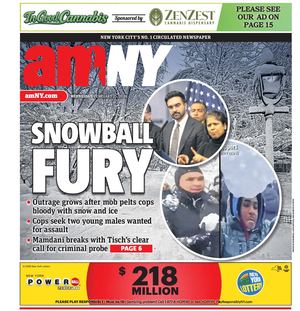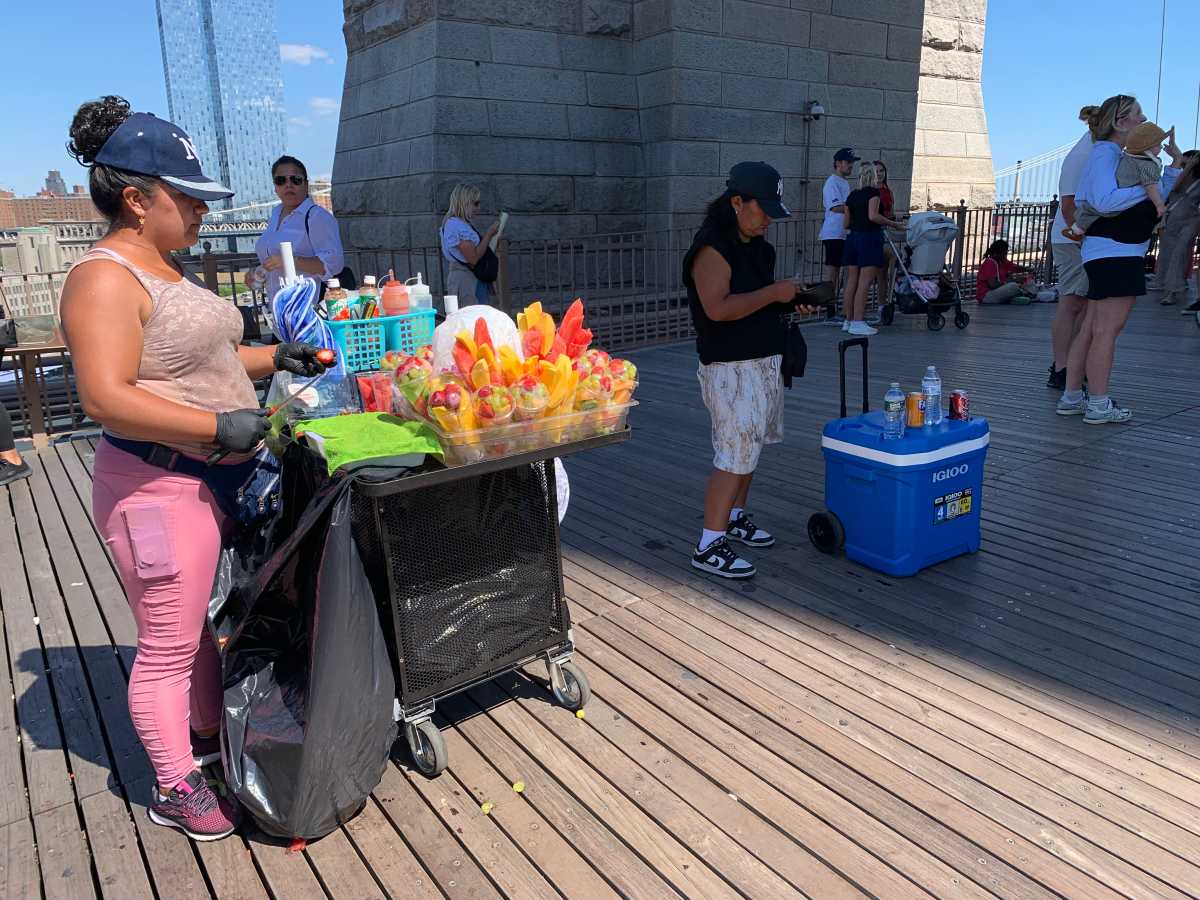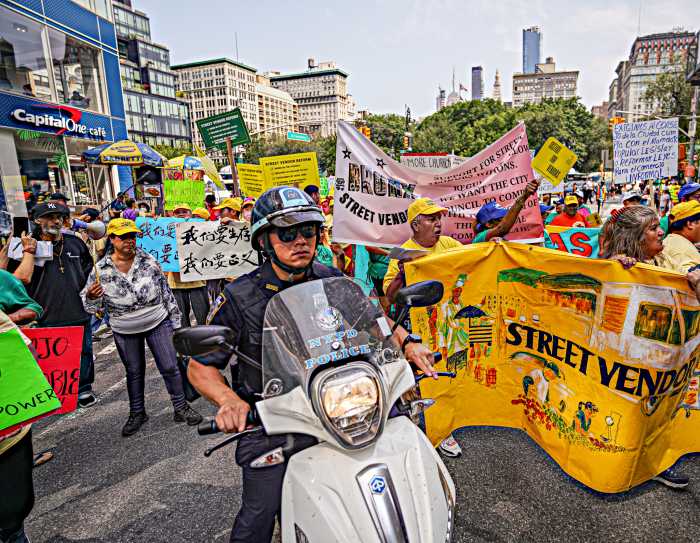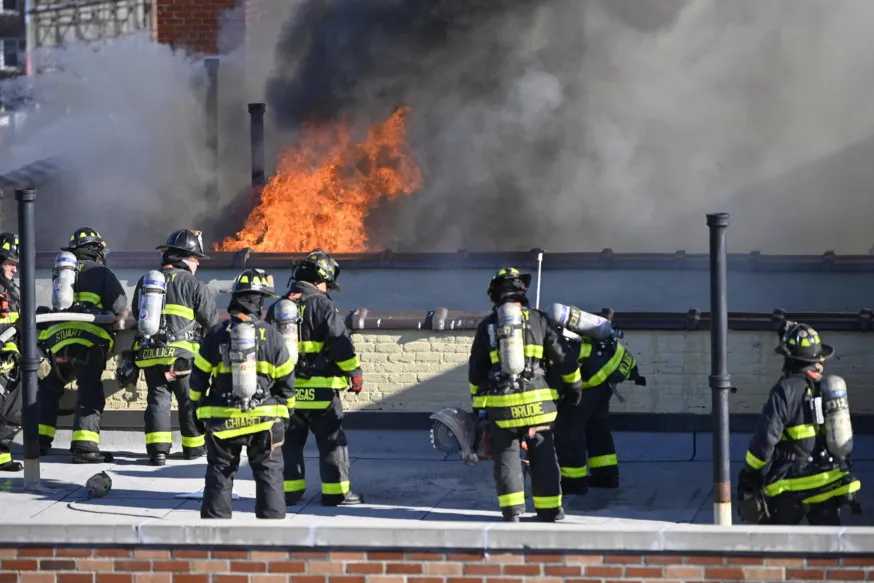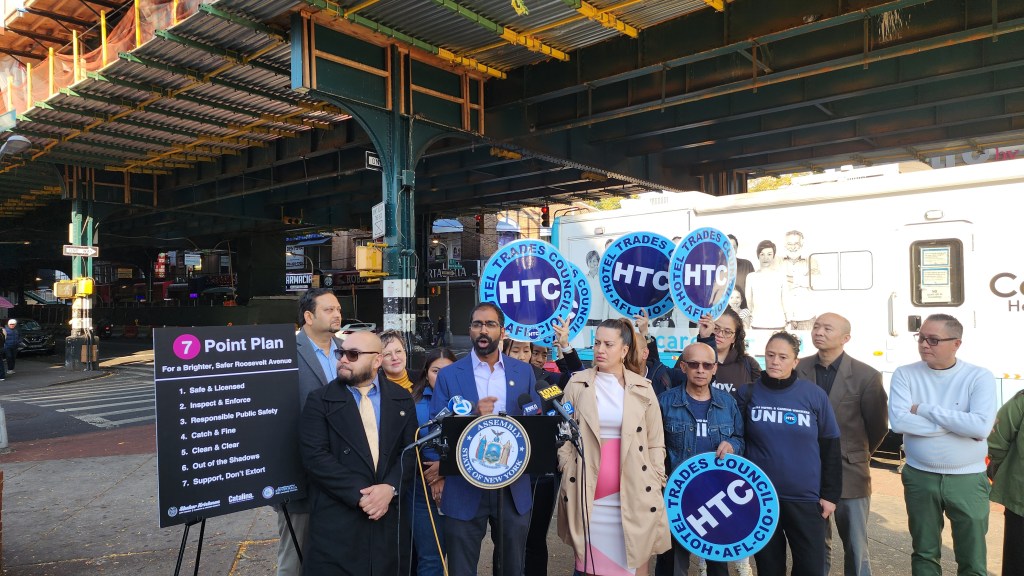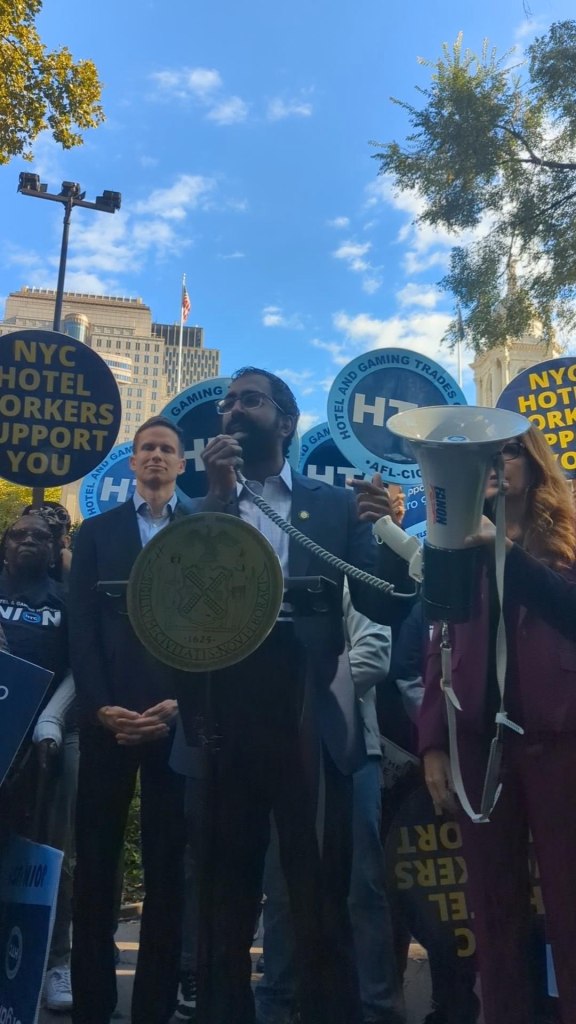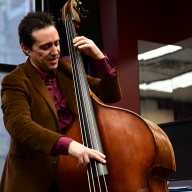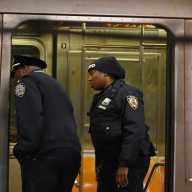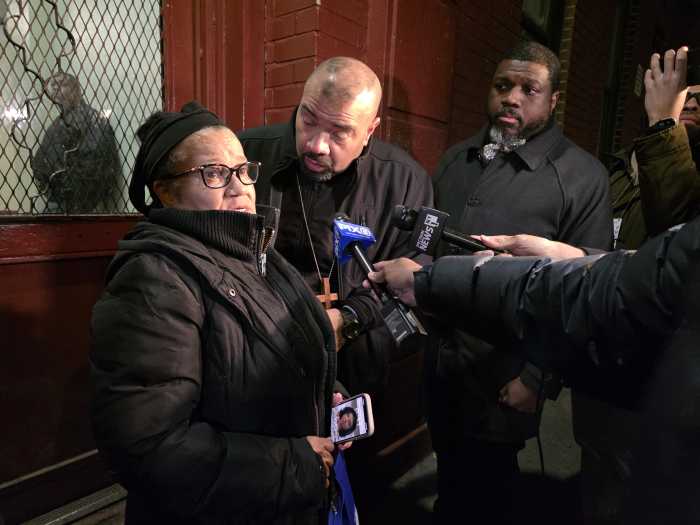Just over a year after Mayor Eric Adams and transit officials banned illegal street vending on the Brooklyn Bridge, the vendors are back. Scores of illegal vending carts selling everything from hats to souvenirs to food lined the walkway on a recent Monday afternoon.
amNewYork visited the landmark bridge several times this month, most recently on Aug. 25. Before even stepping on to the walkway of the iconic East River crossing, five vendors were eagerly selling baseball caps, fruit and water to passersby.
But the vending action heated up once a reporter stepped onto the span to do the classic mile-long walk from Manhattan to Brooklyn. Over 30 illegal vendors blocked parts of the narrow walkway, which at its widest point is only 16 feet. Most vendors were concentrated on the Manhattan side and the center of the bridge. But still, hawkers optimized space on the Brooklyn side, too.
‘It’s part of the NYC experience,’ tourists say
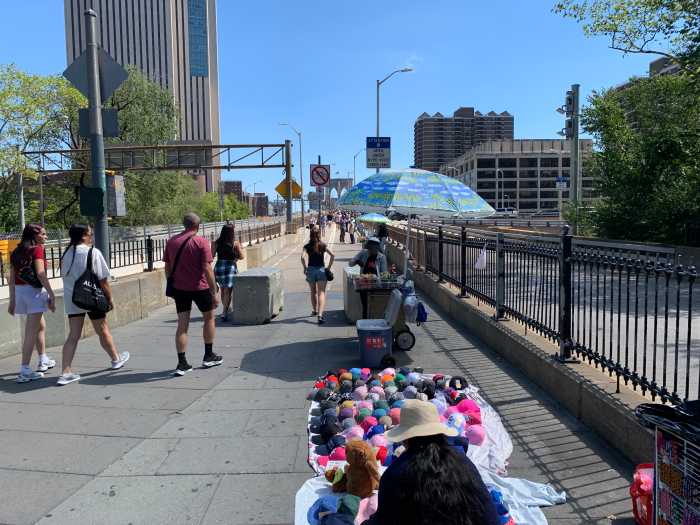
As hundreds of people walked the historic bridge, happily snapping photos of the scenic skyline, the vendors peddled their wares.
Lisa, a tourist from London, browsed the goods. She did not mind the makeshift vending taking up space on the Manhattan side of the bridge.
“It’s fun and part of the NYC experience,” she said.
Miguel was walking across the bridge with his family when he stopped to buy a fruit snack on a sunny day.
“It’s very refreshing to buy cold fruit when you go over the bridge, especially on a very hot day,” he said with a smile.
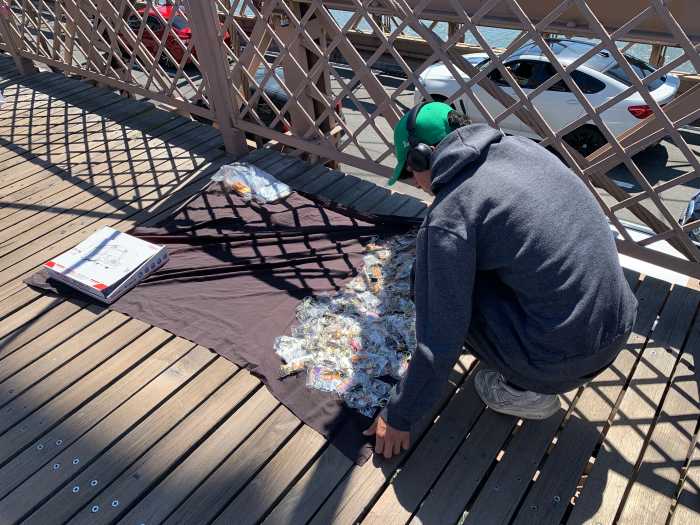
Despite the support for the vendors, vending on the bridge is illegal.
Last year, Mayor Adams conducted a major push to announce new rules clarifying that vending on pedestrian walkways on the Brooklyn Bridge, and all DOT bridges, is prohibited. Officials cited pedestrian safety, as well as bridge security, as reasons for the ban.
“New York commuters as well as the millions of people who visit our city each year should be able to enjoy the Brooklyn Bridge without impediments to safety and pedestrian mobility,” DOT Commissioner Ydanis Rodriguez said last year. “These rules would make it safer and easier for pedestrians to travel across what’s considered America’s Eiffel Tower and take in the world-renowned view of New York Harbor.”
amNewYork reached out to the DOT to see if the ban is still in effect. The agency confirmed that the ban is still active, but deferred follow-up questions to the NYPD.
amNewYork is awaiting a response from police for this story.
Vending with iconic views
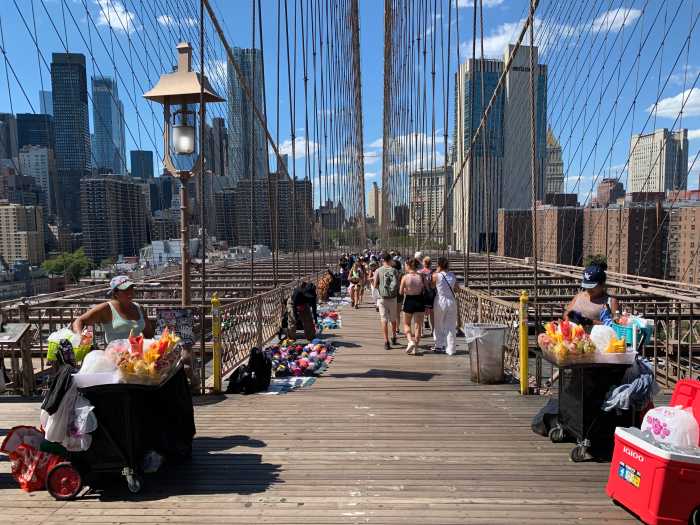
With the Brooklyn Bridge being a popular tourist attraction in NYC, it is not surprising that vendors would gravitate toward the span to optimize their earnings. In fact, international rental car company, SIXT, ranked the Brooklyn Bridge the #2 most iconic bridge views in the United States this month. (The Golden Gate Bridge in San Francisco ranked #1).
Meanwhile, over 22,000 street vendor complaints have been received so far in 2025, though it is unclear how many are from city bridges.
The street vendors’ presence on the Brooklyn Bridge follows Adams’ veto of a NYC Council bill last month that would have decriminalized illegal street vending. Council members and advocates who supported the bill said it would have helped provide protection from deportation, as 96% of the city’s 23,000 street vendors are immigrants.
Brooklyn City Council Member Alexa Aviles, chair of the committee on immigration, told amNewYork that the current vending system is “broken,” and people encounter many challenges when entering the industry.
“There are immense barriers to entry for the often working-class and immigrant New Yorkers that populate our city as street vendors,” she said. “They bring immense cultural value to our streets but often have difficulty entering the process because of excess red tape. That’s why the city council has worked on a package of bills to create an accessible system. The mayor has now vetoed that package, which will further encourage people to try and skirt the archaic bureaucratic vending processes.”
She added that the mayor’s roadblock will result in “wasteful” enforcement spending and less public education on what vending is and is not legal.
“I suggest the mayor should work to create effective systems for our city that provide economic opportunities for working families,” the council member said. “But it seems he is too busy villainizing immigrant New Yorkers in order to distract from his own shortcomings.”
Meanwhile, the NYC Council said recently that members are considering what steps to take in response to the veto.
amNewYork contacted the mayor’s office for comment and is awaiting a response.
